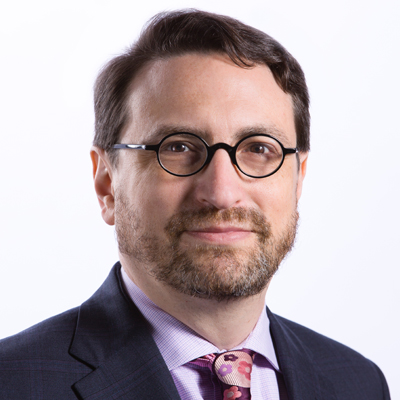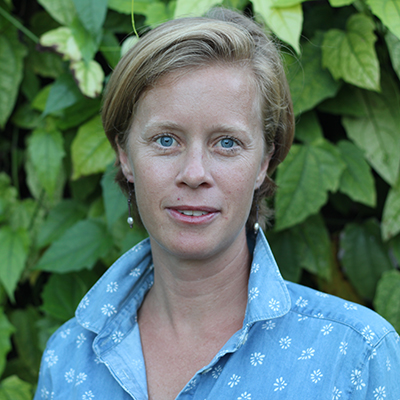Toward a Pluralist Public Square
BU Law Professor Jay Wexler has some advice on how to live in a post-separation of church and state society.

Photo by Fernanda Marin on Unsplash
Toward a Pluralist Public Square
BU Law Professor Jay Wexler has some advice on how to live in a post-separation of church and state society.
There’s a story Boston University School of Law Professor Jay D. Wexler tells: When he was a freshman in high school—one of seven Jews at a Catholic school in Danvers, Massachusetts—he declared to his English class that he was an atheist (he had stopped saying “under God” during the Pledge of Allegiance in elementary school). Later that same day, he broke his collarbone, the obvious, ironic implication being that someone—God or the brothers—wasn’t pleased.
Wexler has always been fascinated by religion. He wanted to take a class on comparative theology as a teen, but his parents balked, believing it would be dominated by Christianity.

As a scholar, Wexler takes it as a given that people in the United States are living in a post-separation of church and state society—that the law has already come down, over and over again, in support of the Christian faith to the detriment of other, minority faiths. The question he asks in his work is: What should people do about that?
“I don’t write about what the doctrine should be,” Wexler says. “I’m more interested in how people and society and minority religions should react to what the doctrine is.”
Ideally, Wexler says, the public square would be a secular one.
“Any time law and religion and government get intertwined, there are all sorts of risks,” he says—to minority religions, which are less likely to be favored than majority ones; to governmental policy, which can be co-opted by faith-based beliefs; and to faiths themselves, which can be compromised if, in accepting benefits or support from government, they are pressured to take positions they otherwise might not take.
But, the secular “ship has sort of sailed from a legal perspective,” Wexler says (especially, he noted in a recent talk at Emory University, now that President Trump has elevated two conservative-minded jurists to the US Supreme Court).
Over the years, Wexler says, the wall separating church—or, Christianity—and state has been winnowed away despite the fact that the country is becoming less and less Christian (according to the Pew Research Center, 70 percent of the country identifies as Christian, down from 78 percent in 2007).

In his latest book, Our Non-Christian Nation: How Atheists, Satanists, Pagans, and Others are Demanding Their Rightful Place in Public Life, Wexler highlights four Supreme Court cases that have helped turn the US into a post-separation of church and state country: Good News Club v. Milford Central School (2001), Zelman v. Simmons-Harris (2002), Van Orden v. Perry (2005), and Town of Greece v. Galloway (2013), which came down, respectively, in favor of a religious club’s right to use a school for its meetings, a state program that provided tuition vouchers for private religious schools; a monument to the Ten Commandments on the grounds of the Texas state capitol, and a town’s practice of opening its meetings with a prayer.
Since a secular state seems out of reach, Wexler argues a pluralist society is the second-best option. Pluralism is “a good in itself,” he says, because “it makes public life more interesting, more stimulating, and more invigorating.”
“Having more ideas swirling around is also consistent with the ideal of the First Amendment’s free speech clause that more discourse is better, that it will result in a marketplace of ideas where the best ideas rise to the top,” he adds.
To create such a state, he argues, people of different faiths—and people of no faith at all—should assert their right to full participation in public life, even when it backfires, as happened in 2007 when a Hindu clergyman gave the morning prayer at the US Senate and protesters had to be removed from the visitors’ gallery (they were charged with a misdemeanor for disrupting Congress).
“Even if it’s chaotic, I prefer the chaos to hegemony,” says Wexler, who has written two previous books about church/state law. “My guess is that over time the chaos will go away and people will recognize that we do live in a religiously diverse nation, so I think it’s at least worth trying.”
He may be right. In 2007, after decades of trying (and federal litigation), for instance, the families of deceased Wiccan military service members won approval from the Department of Veterans Affairs to display the Wiccan pentacle on headstones in veterans’ cemeteries.
In February, Wexler attended oral arguments at the US Supreme Court in The American Legion v. American Humanist Association, which asks whether a giant cross on display at a World War I memorial is unconstitutional. Wexler doesn’t normally attend oral arguments (although he does tweet about the laughter rate of each of the justices). But he was interested in the American Legion case in a “kind of masochistic” ways, he jokes.
“It’s almost amusing that the court could take 70 minutes to argue over whether a 40-foot cross is a religious symbol or not,” he says. “It’s just bananas.”
Wexler says courts have approached questions of church and state as “false choices—either you have to uphold a monument or destroy it.”
“But, in fact, what you could do in most cases, instead of knocking something down, is to open up a public forum around the thing,” he says. “I think that would be fabulous. Personally, I wouldn’t be complaining about the Ten Commandments if the Satanic Temple’s Baphomet was next to it.”
Related News
- Challenging Religious Liberty in the Public Square Could Open the Door to Satan. Good.
- Inspired Intersections: Professor Jay Wexler on writing When God Isn’t Green
- How Did the Constitution Become the Basis for Exclusionary Politics?
